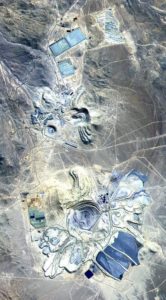Chile Miners Strike Continues
Government-moderated talks between BHP Billiton and striking workers at Chile’s Escondida copper mine broke down on February 20. The workers have returned to their encampment without resolution due to what they call BHP’s “stubborn posture.”
Workers began striking on February 9, demanding clearer shift scheduling, higher wages, and a change to the bonus system. The strike is composed exclusively of unionized mineworkers. Non-unionized workers are still going to work as a prerequisite demanded by BHP to attend the government talks.
Through the first two weeks of the strike, BHP has lost an estimated 41,000 tons of copper production. A fire at the mine further affected production for three days at the beginning of the strike. Escondida has failed to meet deadlines for metal shipments, threatening global supply. The mine produces around five percent of the world’s annual copper supply.
Despite the costs of the strike, the company has pledged not to use non-unionized workers to extract copper; such workers will only perform maintenance tasks. BHP CEO Andrew Mackenzie said that a solution to the strike must come from both sides and that, while dismayed by the strike, he remained committed to a unionized workforce for its benefits to both the workers and the company.
BHP has delayed its option to replace striking workers from the usual fifteen days to thirty. Such a move may be strategic, as workers can individually exit strikes in Chile following thirty days, which they would be more likely to do if their jobs remained open. While the resolution of the strike remains unclear, this decision at least appears to set a deadline for its resolution.

